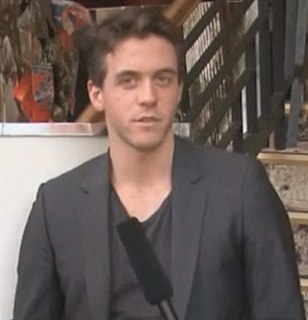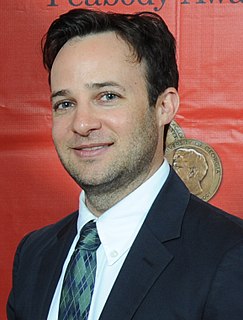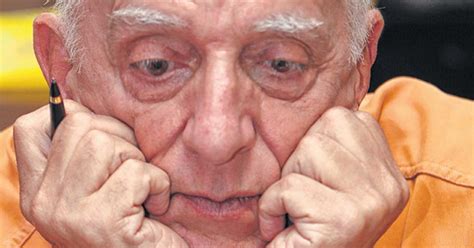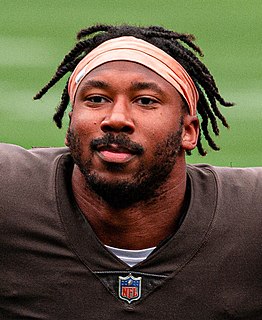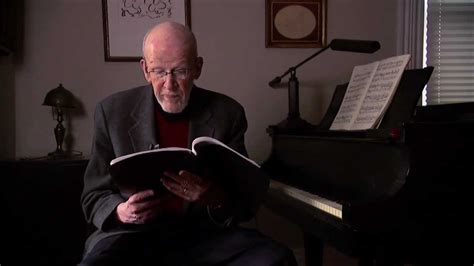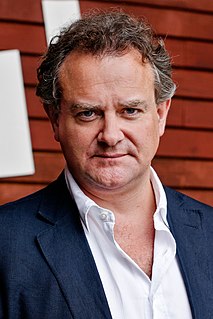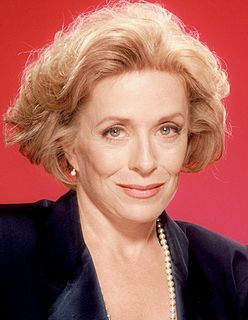Top 1200 Reading Experience Quotes & Sayings
Explore popular Reading Experience quotes.
Last updated on April 14, 2025.
Teenagers are always sneaking around in drawers where they shouldn't go and reading things they shouldn't be reading. And that's an attempt to try, I think, to penetrate, that's how I found out as a teenager what was going on, was by sneaking into drawers and reading letters that I had no business reading.
Traditional religions practices are important.They allow us to share with others the communal experience of adoration and prayer,but we must never forget spiritual experience is above all a practical experience of love,and with love,there are no rules some may try to control their emotions and develop strategies for their behavior,others may turn to reading books of advice from "experts" on relationships but this is all folly.The heart decides and what it decides is all that really matters.
I just know from experience that reading a funny poem aloud, especially at the beginning of a public reading, can have a certain effect. Somehow narrowing the spectrum of possible emotional reactions. So while I like it when people laugh at my poems, and I definitely enjoy being funny in them, I don't really think that's the most important thing that's going on, at least not to me.
No time spent with a book is ever entirely wasted, even if the experience is not a happy one: there’s always something to be learned. It’s just that, every now and again, you can hit a patch of reading that makes you feel as if you’re pootling about. [...] But what can you do about it? We don’t choose to waste our reading time; it just happens. The books let us down.
I feel most myself when I'm reading, but by that I don't mean that I'm most comfortable when I'm reading. I feel most fully a person who's torn between attention and inattention, between loving and hating, between hyper-responsiveness and total dullness. Reading is not a comfortable experience for me.
What do teachers and curriculum directors mean by 'value' reading? A look at the practice of most schools suggests that when a school 'values' reading what it really means is that the school intensely focuses on raising state-mandated reading test scores- the kind of reading our students will rarely, if ever, do in adulthood.
For many years I was trying to find answers only through books but then I realized that basically, life is about experience and the thing that you have to do is experience life instead of only reading about it. Reading is very important, but it's not enough. After reading, you have to take some decisions in your hands and move forward and be the human being that you are, and then going and meeting people and work.
I think I'm still fed by my childhood experience of reading, even though obviously I'm reading many books now and a lot of them are books for children but I feel like childhood reading is this magic window and there's something that you sort of carry for the rest of your life when a book has really changed you as a kid, or affected you, or even made you recognize something about yourself.
There is something about the medium [in comics] that allows for a simulation of actual experience with the added benefit of actually reading. You're reading pictures, but you are also looking at them. It's a sort of combined activity that I can't really think of any other medium having, other than, say, a foreign film when you are reading and seeing. It allows for all sorts of associations that might not come up with just words or just pictures.
You're supposed to be writing from experience - experience with people, with reading, seeing some homeless guy on the street and making up some story of him in your head. If you never see any of that or have those conversations or even sleep enough to have vivid dreams, then what are you writing about?
I grew up in this household where reading was the most noble thing you could do. When I was a teenager, we would have family dinners where we all sat there reading. It wasn't because we didn't like each other. We just liked reading. The person who made my reading list until my late teen years was my mom.
My personal view is that reading has to be balanced. Obviously, there's a certain amount of reading that we have to do academically to continue to learn and to grow, but it's got to be balanced with fun and with elective reading. Whether that's comic books or Jane Austen, if it makes you excited about reading, that's what matters.
For the last episode [of Downton Abbey], you'll need some handkerchiefs. I needed handkerchiefs reading it. It wasn't because it necessarily moved me while reading it, but it was the experience of reading it when I realized it was the last time I was ever going to be reading one of those scripts. That was quite terminal.
Radio is the medium that most closely approximates the experience of reading. As a novelist, I find it very exciting to be able to reach people who might not ever pick up one of my books, either because they can't afford it (as is often the case in Latin America), or because they just don't have the habit of reading novels.
Librarians are hot. They have knowledge and power over their domain...It is no coincidence how many librarians are portrayed as having a passionate interior, hidden by a cool layer of reserve. Aren't books like that? On the shelf, their calm covers belie the intense experience of reading one. Reading inflames the soul. Now, what sort of person would be the keeper of such books?
Sometimes you go to a film and well, you are not very concentrated. In reading, you have to concentrate, to spend the time it requires in order to feel the experience of the work. You have to put all of yourself there to experience something new and to feel and perceive an atmosphere that is unprecedented.
Reading is everything. Reading makes me feel like I've accomplished something, learned something, become a better person. Reading makes me smarter. Reading gives me something to talk about later on. Reading is the unbelievably healthy way my attention deficit disorder medicates itself. Reading is escape, and the opposite of escape; it's a way to make contact with reality after a day of making things up, and it's a way of making contact with someone else's imagination after a day that's all too real. Reading is grist. Reading is bliss.


